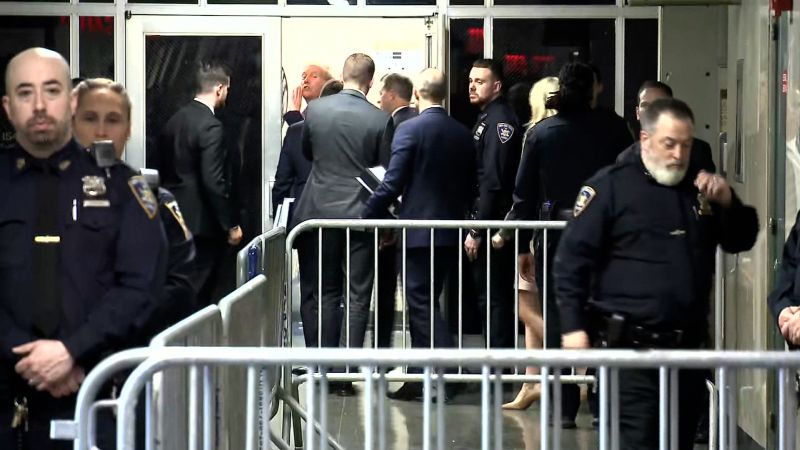Trump always seems to be at the center of legal controversies, and his recent statements about testifying in his hush money case have sparked even more interest. Michael Smerconish, a CNN host, points out that while Trump may want to defend himself on the stand, there are significant risks involved in doing so. One potential alternative could be to have Michael Cohen, a key witness in the case, provide Trump’s perspective on the payment instead. However, if no one else is able to speak on Trump’s behalf, he may ultimately have no choice but to testify.
Trump’s eagerness to testify in his hush money case raises questions about his motivations and potential strategies. Smerconish notes that Trump’s past legal battles have shown his willingness to go on the offensive and use courtroom appearances as a platform to control the narrative. By testifying, Trump may see an opportunity to further shape the public’s perception of the case and present himself in a positive light. However, the risks of testifying cannot be ignored, as it opens him up to potential cross-examination and the discovery of damaging information.
The decision of whether or not to testify ultimately lies with Trump and his legal team. While they may weigh the potential benefits of presenting his side of the story in court, they must also consider the significant risks involved. Trump’s history of making controversial statements and conflicting accounts could come back to haunt him on the witness stand, leading to further legal complications. Additionally, the possibility of damaging evidence being brought to light during cross-examination could have serious implications for his case.
One potential strategy for avoiding a direct testimony from Trump could involve utilizing Michael Cohen as a witness to provide his perspective on the hush money payment. By having Cohen testify on Trump’s behalf, they may be able to present a cohesive defense without the risks associated with Trump taking the stand. However, relying on a single witness to speak on behalf of the defendant can also be a risky move, especially if Cohen’s credibility or motivations come into question during the trial.
If no other viable options are available, Trump may ultimately be left with no choice but to testify in his hush money case. In such a scenario, his legal team will need to carefully prepare him for the potential challenges he may face on the stand. Trump’s ability to stay composed and provide consistent and credible testimony could be crucial in determining the outcome of the case. However, the unpredictable nature of courtroom proceedings and the scrutiny he will face from prosecutors and the public make his decision to testify a high-stakes gamble.
In conclusion, Trump’s willingness to testify in his hush money case presents both opportunities and risks for his defense. While he may see it as a chance to shape the narrative and present his side of the story, the potential pitfalls of testifying cannot be ignored. As the decision of whether or not to testify ultimately rests with Trump and his legal team, they must carefully consider all possible strategies and their potential outcomes. The choice to testify could have far-reaching consequences for Trump’s case and his public image, making it a critical decision in his ongoing legal battles.


